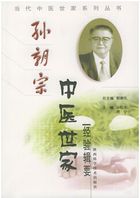``You'll see,'' retorted Kelly.``The next mayor of this town'll be a Leaguer, and by a majority that can't be trifled with.So make hay while the sun shines, Joe.After this administration there'll be a long stretch of bad weather for haying.''
``I'm trying to get hold of Hull,'' said House, and it was not difficult to read his train of thought.``I was a LEETLE afraid he was going to be scared by that document of Dorn's--and was going to do something crazy.''
Again Kelly emitted his queer grunting laugh.``I guess he was a LEETLE afraid he would, too, and ran away and hid to get back his nerve.''
``Oh, he's all right.He's a pushing, level-headed fellow, and won't make no trouble.Don't you think so?''
``Trouble? I should say not.How can he--if he takes the job?''
To which obvious logic no assent was necessary.
Davy's abrupt departure was for the exact reason Mr.Kelly ascribed.And he had taken Hugo with him because he feared that he would say or do something to keep the scandal from dying the quick death of all scandals.There was the less difficulty in dissuading him from staying to sun himself in the glories of his new rank and title because his wife had cast him adrift for the time and was stopping at the house of her father, whose death was hourly expected.
Old Hastings had been in a stupor for several weeks.He astonished everybody, except Dr.Charlton, by rousing on election night and asking how the battle had gone.
``And he seemed to understand what I told him,'' said Jane.
``Certainly he understood,'' replied Charlton.``The only part of him that's in any sort of condition is his mind, because it's the only part of him that's been properly exercised.Most people die at the top first because they've never in all their lives used their minds when they could possibly avoid it.''
In the week following the election he came out of his stupor again.He said to the nurse:
``It's about supper time, ain't it?''
``Yes,'' answered she.``They're all down at din-- supper.
Shall I call them?''
``No,'' said he.``I want to go down to her room.''
``To Miss Jane's room?'' asked the puzzled nurse.
``To my wife's room,'' said Hastings crossly.
The nurse, a stranger, thought his mind was wandering.
``Certainly,'' said she soothingly.``In a few minutes--as soon as you've rested a while.''
``You're a fool!'' mumbled Hastings.``Call Jinny.''
The nurse obeyed.When he repeated his request to Jane, she hesitated.The tears rolled down his cheeks.``I know what I'm about,'' he pleaded.``Send for Charlton.He'll tell you to let me have my way.''
Jane decided that it was best to yield.The shrunken figure, weighing so little that it was terrifying to lift it, was wrapped warmly, and put in an invalid chair.With much difficulty the chair was got out into the hall and down the stairs.Then they wheeled it into the room where he was in the habit of sitting after supper.When he was opposite the atrocious crayon enlargement of his wife an expression of supreme content settled upon his features.Said he:
``Go back to your supper, Jinny.Take the nurse woman with you.
I want to be by myself.''
The nurse glanced stealthily in from time to time during the next hour.She saw that his eyes were open, were fixed upon the picture.When Jane came she ventured to enter.She said:
``Do you mind my sitting with you, father?''
He did not answer.She went to him, touched him.He was dead.
As a rule death is not without mitigations, consolations even.
Where it is preceded by a long and troublesome illness, disrupting the routine of the family and keeping everybody from doing the things he or she wishes, it comes as a relief.In this particular case not only was the death a relief, but also the estate of the dead man provided all the chief mourners with instant and absorbing occupation.If he had left a will, the acrimony of the heirs would have been caused by dissatisfaction with his way of distributing the property.Leaving no will, he plunged the three heirs--or, rather, the five heirs, for the husband of Martha and the wife of the son were most important factors--he plunged the five heirs into a ferment of furious dispute as to who was to have what.Martha and her husband and the daughter-in-law were people of exceedingly small mind.
Trifles, therefore, agitated them to the exclusion of larger matters.The three fell to quarreling violently over the division of silverware, jewelry and furniture.Jane was so enraged by the ``disgusting spectacle'' that she proceeded to take part in it and to demand everything which she thought it would irritate Martha Galland or Irene Hastings to have to give up.
The three women and Hugo--for Hugo loved petty wrangling--spent day after day in the bitterest quarrels.Each morning Jane, ashamed overnight, would issue from her room resolved to have no part in the vulgar rowdyism.Before an hour had passed she would be the angriest of the disputants.Except her own unquestioned belongings there wasn't a thing in the house or stables about which she cared in the least.But there was a principle at stake--and for principle she would fight in the last ditch.
None of them wished to call in arbitrators or executors; why go to that expense? So, the bickering and wrangling, the insults and tears and sneers went on from day to day.At last they settled the whole matter by lot--and by a series of easily arranged exchanges where the results of the drawings were unsatisfactory.Peace was restored, but not liking.Each of the three groups--Hugo and Martha, Will and Irene, Jane in a group by herself--detested the other two.They felt that they had found each other out.As Martha said to Hugo, ``It takes a thing of this kind to show people up in their true colors.'' Or, as Jane said to Doctor Charlton, ``What beasts human beings are!''
Said he: ``What beasts circumstance makes of some o them sometimes.''
``You are charitable,'' said Jane.















